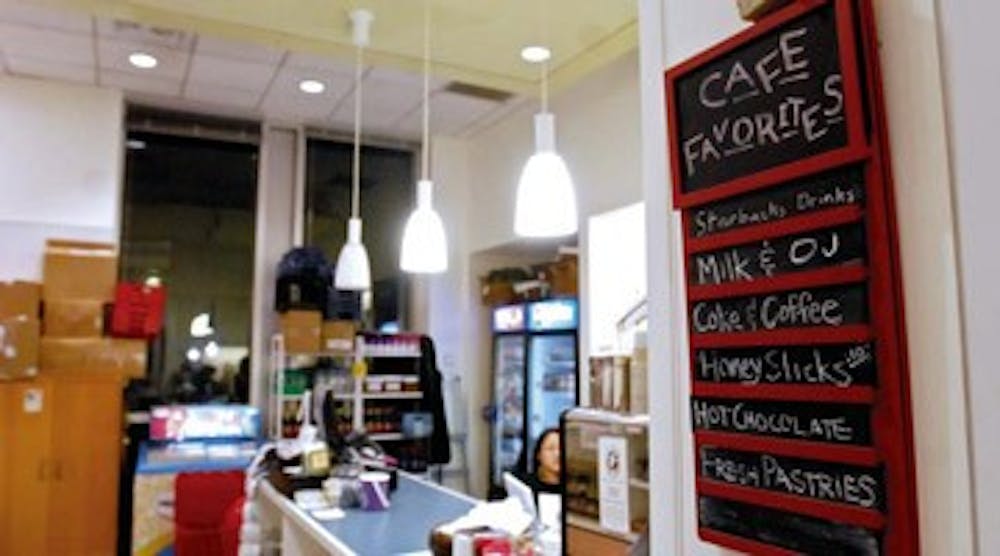Spending a little extra on a can of soda might actually be worth more than you think.
Many of the College House convenience stores - which sell everything from childhood relics like Dunkaroos to urgently-needed late-night coffee - mark up their prices in order to attempt to break even.
For example, candy bars that Oasis in Kings Court College House purchases for $0.50 are resold to students for $0.75.
But don't get upset yet - this extra money may ultimately benefit College House residents.
According to College senior Joshua Markman, manager of Harrison's Cafe Prima, profits that aren't reinvested in the cafe go to the house.
Harrison has been able to fund larger programs as a result of Cafe Prima, House Dean Frank Pellicone said.
Although each house manages financial responsibilities differently, house budgets accommodates their store's profits and losses.
When a loss is recorded, the House Deans and student managers will reevaluate the situation and make appropriate changes.
Last school year, for example, when Oasis was generating a loss, House Dean Krimo Bokreta began making more suggestions on pricing and store hours to the student manager at the time, said College Sophomore Kevin Taylor, Oasis's current manager.
Other stores like Harrison's cafe, which have regularly made profits, are reconsidering their sales strategies anyway.
There have been years Harrison has made "too much" off their cafe, Pellicone said.
Now, it is moving more toward breaking even as the management focuses on benefiting residents rather than raising prices, he added.
"The short version is that our store is not run as a business but as a House program," added Riepe College House Dean Marilynne Diggs-Thompson.
Taylor explained that Oasis is "not really a money maker, but mainly [there] for the pleasure of the house."
With approximately $11,000 in spending, $10,000 in revenue and $1,000 left in inventory last semester, Oasis broke even, Taylor said.
While Oasis marks up prices 35 percent on average, Taylor said, other stores charge considerably more.
But many residents, like Wharton freshman Kirk Brown, say this is acceptable. Brown goes almost daily to Riepe's Grotto for practicality and purchases drinks that are relatively well priced, he said.
Other students said they divide their spending between Wawa and CVS, which offer product variety, and the in-house stores, which offer convenience.
If students know that their purchases affect house programming, it may sway dubious or skeptical students into purchasing in-house.
"I think a huge part of why we're successful is kind of a sense of community in [Harrison]," said Markman.
Riepe resident and Wharton and Engineering Sophomore Clarence Quah has never shopped at the Grotto. But he said if he knew the Grotto needed to boost sales, he would "check it out and probably consider buying stuff then, just to help them out."



